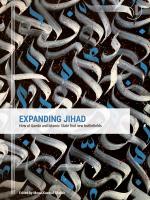Al-Qaeda and Islamic State compete for a presence in South Asia
As the Rohingya crisis has recently caught the world attention, Islamic State and Al-Qaeda has been actively engaged in Bangladesh for the past couple of years, using the atrocities committed in neighboring Myanmar as a mobilization argument.
In a new volume analyzing why Islamic State and Al-Qaeda successfully manage to establish their presence in some places more than others, senior researcher Mona Kanwal Sheikh looks at the dynamics that have created a space for IS/AQ in Bangladesh.
IS claimed its first attack in Bangladesh only a year after the Caliphate was proclaimed in Mosul, and operates through the local movement, Jamaat-ul-Mujahideen Bangladesh (JMB). Though the Rohingya crisis is important as explanation for the presence of AQ and IS in Bangladesh, Sheikh points at other factors of importance:
- The large number of British nationals of Bengali origin who joined Islamic State in Syria and Iraq, and have tried to recruit in their native country.
- IS’ ambitions to take over India or, in their own language, to ‘liberate’ the area.
- Ghazwa-e-Hind (the Battle of India), which is part of the apocalyptic imagery embraced by both AQ and IS.
Though Bangladesh is a developing country, it is worth noting that it is not only individuals from the poorer sections of society or the religious seminaries who are attracted to the AQ or IS ideology. In fact, it was a well-off private university student who had returned to Bangladesh after studying in Canada who organized the deadliest attack on foreigners in a diplomatic area of Dhaka in 2016.
DIIS Eksperter


